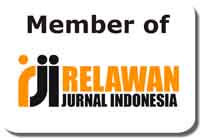A Cross-cultural Study of The Speech Act of Compliments in American English and Yemeni Arabic
Abstract
Based on a cross-cultural perspective, the current study aims to compare the realization of the speech act of compliments among Yemeni Arabic native speakers (YANSs) and American English native speakers (AENSs). Samples of 30 participants of Americans and 30 other participants of Yemenis were involved in the study. The data were collected through a Discourse Completion Test (DCT) consisting of six hypothetical compliment scenarios. The corpus collected for analysis was 380 Arabic compliment semantic formulas and 338 English compliment semantic formulas. Data were analyzed in terms of frequency counts of 20 strategies and order of semantic formulas in the speakers' response utterances. The findings showed that there are some pragmatic similarities and differences between the two native groups. Some strategies seemed to be universal across the two cultures like Admiration whereas strategies of Exaggeration, Gratitude to God and Metaphor are culturally specific to Arabic. The findings also revealed that most of the speakers' utterances were in the two-fold order of semantic formulas. Moreover, the findings showed that American compliments were steady and formulaic in nature while Arabic Compliments were various in formulas and long.
Keywords
Full Text:
PDFReferences
Al-Mansoob, N. T. and Alrefaee, Y. M. (2018) Pragmatic Transfer of Yemeni EFL Learners: An Interlanguage Pragmatic Study of Yemenis and Americans. Saarbrücken, Deutschland: LAP LAMBERT Academic Publishing.
Alrefaee, Y. M. (2018) Pragmatic Transfer and Its Relation to Proficiency. Saarbrücken, Deutschland: LAP LAMBERT Academic Publishing
Alsohaibani, A. (2017). Influence of Religion on Language Use: a sociopragmatic study on the influence of religion on speech acts performance. (Unpublished doctoral thesis). University of East Anglia. England.
Brown, P., & Levinson, S. (1987). Politeness: Some Universals in Language Usage. Cambridge University Press, Cambridge.
Cohen, A., (1996). Developing the ability to perform speech acts. Studies in Second Language Acquisition, 18, 253–267.
Enssaif, Z. (2005). Compliment behavior: Strategies and realizations in English and Arabic: A case study of female students of the English department, King Saud University. (Unpublished master’s thesis). King Saud University, KSA.
Fraser, B. (1985). On the universality of speech act strategies. In S. George (Ed.), from the linguistic to the social context (pp. 43-49). Bologna, Italy: Clueb.
Ghazzoul, N. (2019). Linguistic and Pragmatic Failure of Arab Learners in Direct Polite Requests and Invitations: A Cross-cultural Study. Theory and Practice in Language Studies, 9(2), 223. https://doi.org/10.17507/tpls.0902.13
Holmes, J. (1986). Compliments and compliment responses in New Zealand English. Anthropological Linguistics, 28(4), 485-508.
Intachakra, S. (2004). Contrastive pragmatics and language teaching: Apologies and thanks in Englishand Thai. RELC Journal: A Journal of Language Teaching and Research, 35(1), 37-62.
Kasper, G. (1992). Pragmatic transfer. Second Language Research, 8, 203-231.
Meier, A. J. (2010). Culture and its effect on speech act performance. Speech act performance: Theoretical, empirical and methodological issues, 75-90. Amsterdam: John Benjamins.
Murray, N. (2010). Pragmatics, awareness raising, and the cooperative principle. ELT Journal 64.3, 293-301. doi: https://doi.org/10.1093/elt/ccp056.
Nelson, G., El-Bakary, W., & Al Batal, M. (1993). Egyptian and American compliments: A cross-cultural study. International Journal of intercultural relations, 17(3), 293-313.
Qanbar, N. (2012). Compliments in the Yemeni society: A Sociolinguistic Perspective. GEMA Online® Journal of Language Studies. 12(3), 999-1017.
Shahsavari, S., Alimohammadi, B., & Rasekh, A. E. (2014). Compliment Responses: A Comparative Study of Native English Speakers and Iranian L2 Speakers. Procedia - Social and Behavioral Sciences, 98, 1744–1753.
https://doi.org/10.1016/j.sbspro.2014.03.602
Takahashi, S. (1996). Pragmatic transferability. Studies in Second Language Acquisition, 18(2), 189-223.
Thomas, J. (1983). Cross-cultural pragmatic failure. Applied Linguistics, 4, 91-112.
Yu, M. C. (2005). Sociolinguistic competence in the complimenting act of native Chinese & American English speakers: A mirror of cultural value. Language & Speech, 48(1), 91-119.
Yule, G. (1996). Pragmatics. UK: Oxford University press.
Wierzbicka, A. (1985). Different cultures, different languages, different speech acts. Journal of Pragmatics 9, 145– 178.
Wolfson, N. (1981). Compliments in cross-cultural perspective. TESOL Quarterly, 15(2), 117-24.
Yoosefvand, A. and Rasekh, A. E. (2014). A comparative study of Gratitude Speech Act between Persian and English Speakers. Journal of Applied Linguistics and Language Research, 1(2), 44–61.
DOI: http://dx.doi.org/10.31332/lkw.v5i1.1271
Copyright (c) 2019 Yasser Mohammed Alrefaee

This work is licensed under a Creative Commons Attribution-ShareAlike 4.0 International License.
Langkawi: Journal of The Association for Arabic and English indexed by:


















.png)
.png)

.png)
2.png)








